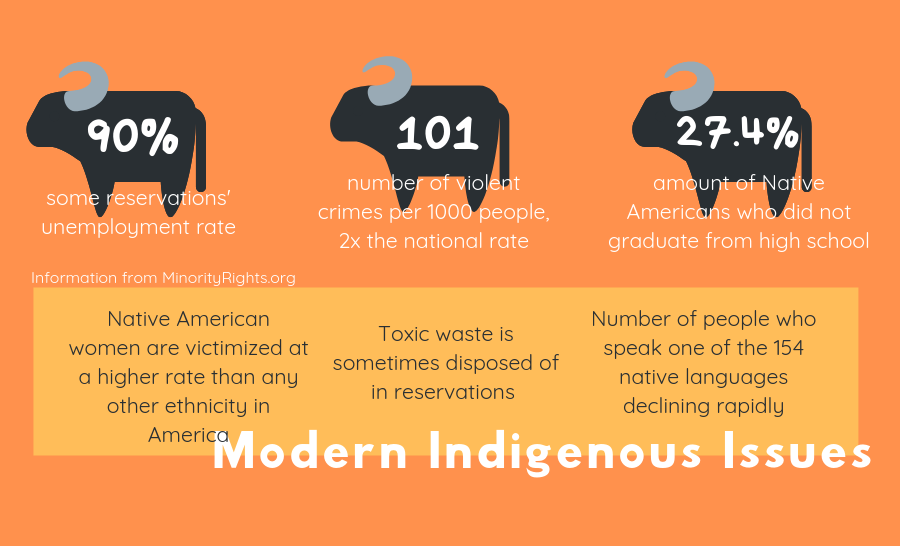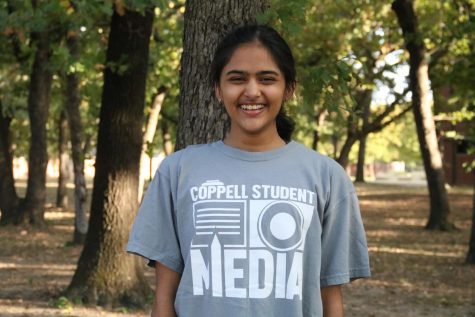Calling Columbus Day Indigenous Day is not just a preference
Socio-economic and cultural problems in the U.S. affect Native Americans disproportionately due to the lingering effects of colonialism-induced prejudice, according to The Sidekick junior student life editor Neha Desaraju. Desaraju thinks making Indigenous Day a federally recognized holiday would decrease indigenous erasure and draw attention to these issues.
October 14, 2019
Most people in Coppell do not know we live on land that was taken from the Comanche and a collection of other southern American tribes.
America isn’t only a land of immigrants; it is a land that was stolen from millions of people violently and unfairly.
It is also the reason why my family and I don’t stay home for Columbus Day. We stay home for Indigenous Day and make sure we include the centuries of injustice against American indigenous people in our conversations.
My family and I are not indigenous, but we are also not ignorant to the fact that celebrating the people who arguably started years of suffering to Native Americans not only erases that suffering, but also perpetuates the belief that such prejudice are OK, because it was the beginning of a white nation. It only teaches that historically, it is fine if violence occurred when it benefited white immigrants, who profited off of the suffering of indigenous peoples, exploiting them for gold, land and labor.
That is the kind of thinking that ensures Native American issues are underreported and underaddressed – from the one in three Native American women who go missing every year to the fact that on some reservations, Native American women face murder rates at 10 times the national average. Native Americans also face a lack of sanitary drinking water – as of 2013, about 7.5 percent of homes did not have a water source for consumption.
According to the U.S. Census Bureau, about 1.5 percent of the U.S. population identifies as American Indian or Alaskan Native but 24.1 percent of them do not have health insurance – despite accounting for such a small percent of the population, they are one of the ethnicities hit with the largest poverty.
In addition, we have plenty of chances to celebrate Christopher Columbus, the influx of white immigrants who followed and their “discovery of America” in our history classes. What matters more is fighting the prejudices inherent in our education, workplace and communities that continue to contribute to the oppression of Native Americans sometimes in the smallest ways.
Coppell High School junior Fiona Lopez is part Native American, and she and her father’s family belong to the Jumano tribe, an unrecognized tribe from West Texas.
“[Replacing Columbus Day with Indigenous Day] is great because there would be recognition for Native Americans,” Lopez said. “No matter what, there needs to be recognition. In our textbooks, I always feel like there’s a lot that isn’t covered. Especially currently, I feel like we need to remember that.”
While we can never entirely undo indigenous erasure, we should not use that as an excuse to not acknowledge what we can and understand the land we live on belonged to an entire group of people before Columbus.
There is a way to do that.
Last Tuesday, the city of Dallas joined 130 other cities across the country to replace Columbus Day with Indigenous Peoples Day this year, stating that “honoring the role of Columbus…as a historical figure promotes values of intolerance and violence that are still common in today’s world.” Replacing Columbus Day with Indigenous Day as a federal holiday would encourage institutions and the people behind them to acknowledge the tribes and their members and alleviate some effects of colonialism.
“[Indigenous erasure] has improved over time,” Lopez said. “I know more tribes are being acknowledged, and some claims are being protected. But some tribes and populations but still haven’t been recognized. [Native] American history should be covered [in classes] as a good foundation of America. Columbus is important, I understand, but you need to consider other perspectives.”
Follow Neha (@nehades_) and @CHSCampusNews on Twitter.











